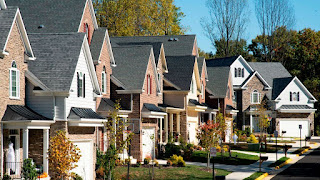Convenience is King
With the rise and current decline in the popularity of suburbia, I've come to consider whether this is a cyclical trend, if it is based on convenience, or if there is another explanation... Generally, we learn about suburbia and the white flight in the 1950's and many of us have personally grown up in suburbia. Because the suburbs are all we know, we see many young adults moving to cities to experience something new. Part of this is that we do not yet have children to take care of. As we grow older and form our own families, there becomes the need for more space and thus young families begin to leave the city and find their homes in the suburbs. However, we are also seeing adults who grew up in the city also return to the city after higher education. Thus, this first theory (that people want the opposite of what they grew up with) does not hold weight.
I think a more accurate equation is:
AGE x RENT / INCOME x SPACE NEEDED x (IN)CONVENIENCE OF THE CAR
AGE: The lifestyle of the young adult is more effective in a city. Generally, people aged 20-30 are going out more, gaining a social understanding, and making friendships and community by going and doing something. Living in the city gives many opportunities as the availability of restaurants and bars is higher and closer. as you enter your 30s + you generally have developed some community, and do not need to meet with friends as frequently to sustain friendships. Life becomes more focused on your spouse and kids and more time is spent with them at home than in the city doing things. Thus, the proximity to the city is less important, as proximity to good schools becomes more important.
SPACE NEEDED: Along with age, the amount of space needed tends to follow a general pattern. A young adult living alone does not need much space, but as soon as a partner enters the picture, two people sharing one space will want more room and may be happy moving further from the city. Again, we go back to the construct of family, and when children begin to join the equation more space is needed, and that space is more readily available outside of the city.
RENT / INCOME: Looking at what percentage of our income goes to rent is vital. As young adults, we start at our lowest salary and gain as we become more experienced. With this salary ceiling, we are willing to only spend a certain percentage on rent. A small apartment in the city with no parking will be cheaper than flat-out buying a house in the suburbs. However, an apartment for a family can be impractically priced, considering how long you will live there and the investment in rent vs what could be going into home ownership. In this case, I have not mentioned condos. Owning an apartment can be practical, but families tend to want a private backyard and a place for kids to play.
(IN)CONVENIENCE OF THE CAR: In some cities having a car is vital, in others it is more of a hassle. For example, in older US cities, car infrastructure is not as prevalent as some public transportation (subway, train, or just walking). Think about NYC or Washington D.C., having a car is not needed because you can take to subway, rideshare, or walk. Finding a place to park and paying for it is not worth it, especially when you consider the traffic that you'll waste your time in. On the flip side of that coin, rural towns and true suburbia have no public infrastructure. Unless you're borrowing a car or ride-sharing, there are not a lot of options. Even in college towns, where bus systems are common, it can be difficult for students without cars to get by.
These are the main factors I believe to contribute to the trends of city vs suburbia living. How would y'all rank these in order of importance? Are there any other factors that y'all can think of?


Comments
Post a Comment